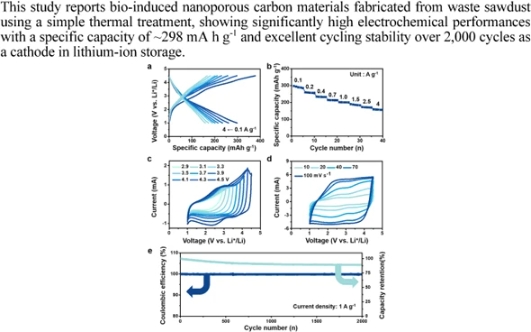Sustainable resources, particularly those induced from bio-derived waste materials, can be transformed into useful nanocarbon materials with high functionality. In this study, nanoporous carbon materials (N-CMs) were fabricated from waste sawdust using a simple heating process and a carefully controlled activation process. The waste-induced N-CMs had a high specific surface area of ∼3044.6 m2 g−1, a nanoporous structure, and > 6 at.% heteroatoms. These properties led to high electrochemical performance with a specific capacity of ∼298 mAh g−1 and excellent cycling stability over 2,000 cycles as a cathode in lithium-ion storage. Moreover, when the N-CMs were assembled with a nanostructured carbon-based anode, all full carbon-based cells could deliver high specific energy and specific power of ∼377 Wh kg−1 and ∼20,247 W kg−1, respectively, with a long-term cycle life of more than 1,000 cycles.
